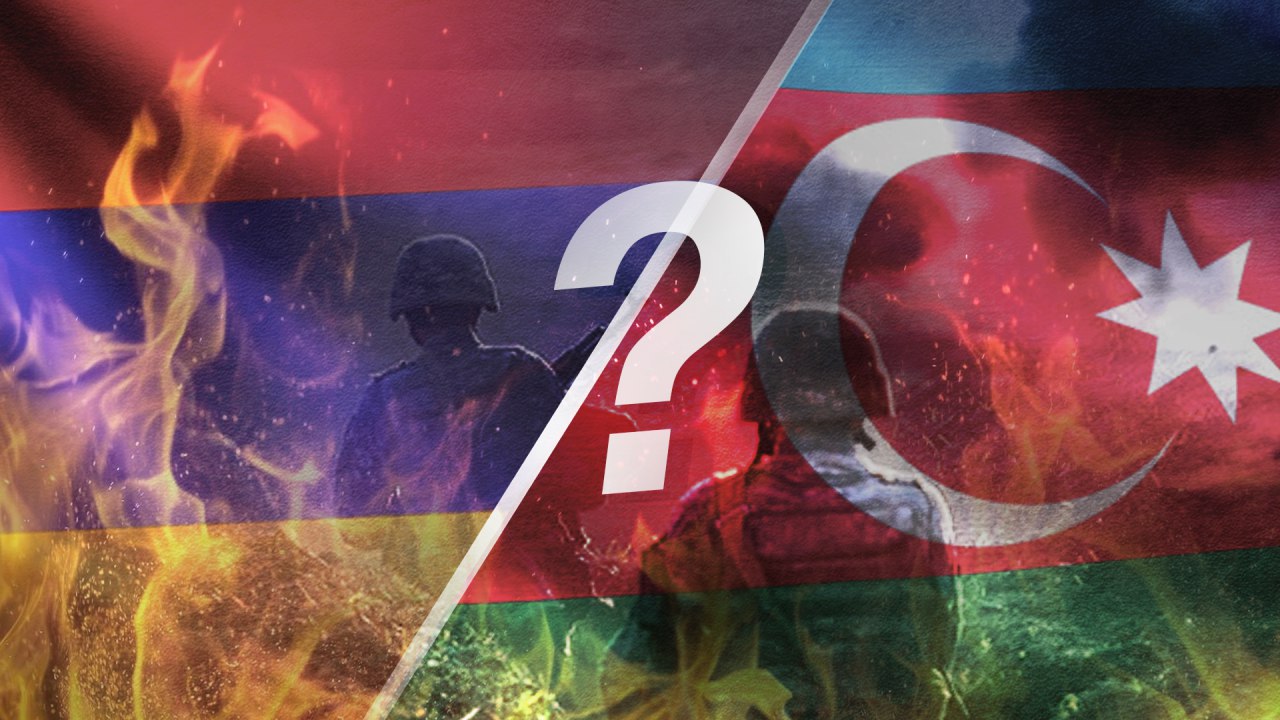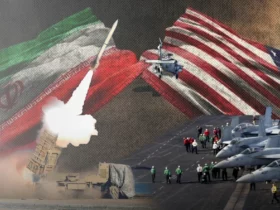On September 27, fierce battles began in Nagorno-Karabakh, occupied by Armenia. In response to the shelling from the Armenian side, the Azerbaijani Defense Ministry announced a full-scale counteroffensive military operation in Nagorno-Karabakh.
https://uwidata.com/12984-azerbaijan-armenia-border-clashes-and-the-karabakh-problem/
The stated goal of the operation is “to suppress the combat activity of the armed forces of Armenia and ensure the safety of the civilian population”.
Around 6 a.m. Armenian troops began firing at Azerbaijani settlements. Gapanly village of Terter region, the Chiragli and Orta Gervend villages of Aghdam region, the Alkhanli and Shukurbeyli villages of Fizuli region, and the Jojug Marjanli village of Jabrayil region were shelled from large-caliber weapons, mortars, and artillery. There were many killed and wounded among civilian population. The Turkish journalists were also targeted by the Armenian shelling.
President of Azerbaijan Ilham Aliyev addressed to the people. He said that as a result of shelling by the Armenian Armed Forces, casualties among civilians and military personnel were recorded.
In his address, Aliyev also noted that he would never negotiate with the authorities of the puppet Armenian separatist regime of Nagorno-Karabakh. Ilham Aliyev called the attack against the military and civilian population of Azerbaijan a manifestation of “Armenian fascism”.
“Azerbaijan defends its lands, Nagorno-Karabakh belongs to Azerbaijan,” Aliyev asserted.
Armenia has announced the introduction of martial law and general mobilization.
History of the issue
In 1991, the Armenian separatist movement in Nagorno-Karabakh illegally declared secession from Azerbaijan. In the ensuing conflict, the separatists were supported by the Armenian authorities and army, as well as by Armenian militants from abroad. As a result of ethnic cleansing, the Azerbaijani population was expelled from Nagorno-Karabakh. Armenian troops also seized seven districts around Nagorno-Karabakh.
Under pressure from Moscow, which allegedly supported the Armenian side, an armistice protocol was signed in 1994. Since that time, Azerbaijan insisted on the peaceful reintegration of Nagorno-Karabakh into Azerbaijan. No country in the world, including Armenia itself, recognizes the sovereignty of the separatist authorities. Four UN Security Councils and two UN General Assemblies demand the withdrawal of Armenian occupying forces from Nagorno-Karabakh.
From time to time military operations are resumed in the region. In July this year there were clashes on the Armenian-Azerbaijani border, about 300 kilometers from Nagorno-Karabakh. The death toll on both sides was 18 people.
The Azerbaijani army’s counteroffensive against the Armenian occupiers in Nagorno-Karabakh is now developing successfully. Fierce battles are taking place along the entire length of the front.
According to the Ministry of Defense of Azerbaijan, already in the beginning of the counter-offensive 12 units of anti-aircraft missile systems “OSA” of Armenian air defense units were destroyed.
There are chances that significant territories will be liberated.
Failure of diplomacy
The resumption of hostilities in Nagorno-Karabakh is evidence of the failure of diplomacy.
Now the main role in the peacemaking process in Nagorno-Karabakh is played by the OSCE Minsk Group, co-chaired by Russia, USA and France. These are the three countries where most of the Armenian Diaspora lives in the world and where the Armenian lobby is active. It is not surprising that the group’s activities did not lead to any real work after the end of the Armenian occupation over Nagorno-Karabakh.
Russia bears the principal responsibility for unleashing a new conflict in Nagorno-Karabakh. Armenia is Russia’s ally in the Collective Security Treaty Organization (CSTO). Armenia’s security is entirely dependent on Russia; its economy is also Russia-oriented and largely relies on revenues from the Armenian community in Russia.
Instead of using all these tools to pressure Armenia and force it to make concessions to Azerbaijan’s legitimate demands, Russia has condoned Yerevan’s aggressive stance. Thus, against the background of shelling of Azerbaijani territories from the Armenian side, the Armenian army was invited to participate in the Russian “Kavkaz-2020” military drill in September.
Russia’s attempts to propose de-escalation of the conflict by returning five of the seven occupied districts around Nagorno-Karabakh to Azerbaijan (Lavrov’s plan) failed, because the Armenians reportedly rejected the Russian propositions.
Turkey: together with Azerbaijan
The President of Turkey Recep Tayyip Erdoğan declared that “Turkey will continue to stand by its brothers in Azerbaijan”.
LATEST — President Erdoğan: By attacking Azerbaijan, Armenia has proved once again it is the biggest obstacle to peace and stability in the region. Turkey will continue to stand by its brothers in Azerbaijan as it has always donehttps://t.co/w7Kk8ZmgVW pic.twitter.com/bLpA1cen4B
— Daily Sabah (@DailySabah) September 27, 2020
Earlier official representative of the Turkish President İbrahim Kalın stated that Turkey supports Azerbaijan and condemns the actions of Armenia.
We strongly condemn Armenia’s attack on Azerbaijan. Armenia has once again violated international law and shown that it has no interest in peace and stability.
Turkey stands in full solidarity with Azerbaijan and unreservedly supports its right to self-defense.
— İbrahim Kalın (@ikalin1) September 27, 2020
According to him, Yerevan broke the ceasefire, attacked the civilian population and demonstrated that it is against peace and stability. İbrahim Kalın added that “the international community must immediately say stop to this dangerous provocation”.
Ermenistan’ın Azerbaycan’a yönelik saldırısını şiddetle kınıyoruz.
Ermenistan sivil yerleşim birimlerine saldırarak ateşkesi ihlal etmiş ve barış ve istikrara karşı olduğunu bir kez daha göstermiştir. Uluslararası toplum bu tehlikeli provokasyona derhal dur demelidir.— İbrahim Kalın (@ikalin1) September 27, 2020
Turkish Minister of Defense Hulusi Akar also said Turkey would support Azerbaijan to preserve the country’s integrity.
2. MSB HULUSİ AKAR: Toprak bütünlüğünü koruma mücadelesinde tüm imkânlarımızla sonuna kadar Azerbaycan Türkü kardeşlerimizin yanında olacağız. Ermenistan'ın bu alçak saldırısını şiddetle kınıyoruz.
— T.C. Millî Savunma Bakanlığı (@tcsavunma) September 27, 2020
Speaker of the Grand National Assembly of Turkey Mustafa Şentop declared that Armenia is an “established terror state”.
Sivillere yönelik son saldırıları göstermiştir ki, Ermenistan, sadece Azerbaycan’a karşı bir tehdit değil, bütün bölge barışı bakımından iflah olmaz bir terör devletidir ve doğacak sonuçların tek sorumlusudur.
Türkiye, Azerbaycan’ın yanında bütün gücüyle durmaya devam edecektir.
— Mustafa Şentop (@MustafaSentop) September 27, 2020
The Foreign Ministry of Turkey called the Armenian attack “a clear violation of international law”.
From late July to early September, Turkish and Azerbaijani troops conducted a series of large-scale military exercises, including on the border with Armenia. The army and aviation took part in the drills.
Turkey demonstrated that it was always ready to help its Azerbaijani brothers. If necessary, the Turkish troops will be able to effectively carry out combat missions to liberate Nagorno-Karabakh and other Azerbaijani territories occupied by Armenians.
Turkey’s support is also a guarantee against Russia’s reckless entry into the conflict on Armenia’s side.
The Azerbaijani army is known to be the strongest in the South Caucasus. There is no doubt that it will be able alone to defeat the troops of Armenia and the puppet separatist regime in Nagorno-Karabakh if they are not supported from outside.
At the same time, it cannot be ruled out that external interests are behind Armenia’s suicide attack against Azerbaijan. Too many countries, primarily the U.S. and France, are interested in dragging Turkey into a conflict that would divert its attention from Syria, Libya and the Eastern Mediterranean in general.
However, there is no doubt that Turkey will be able to effectively resolve the conflict situation by all means and destroy all plans of its enemies wherever they are.

















Leave a Reply